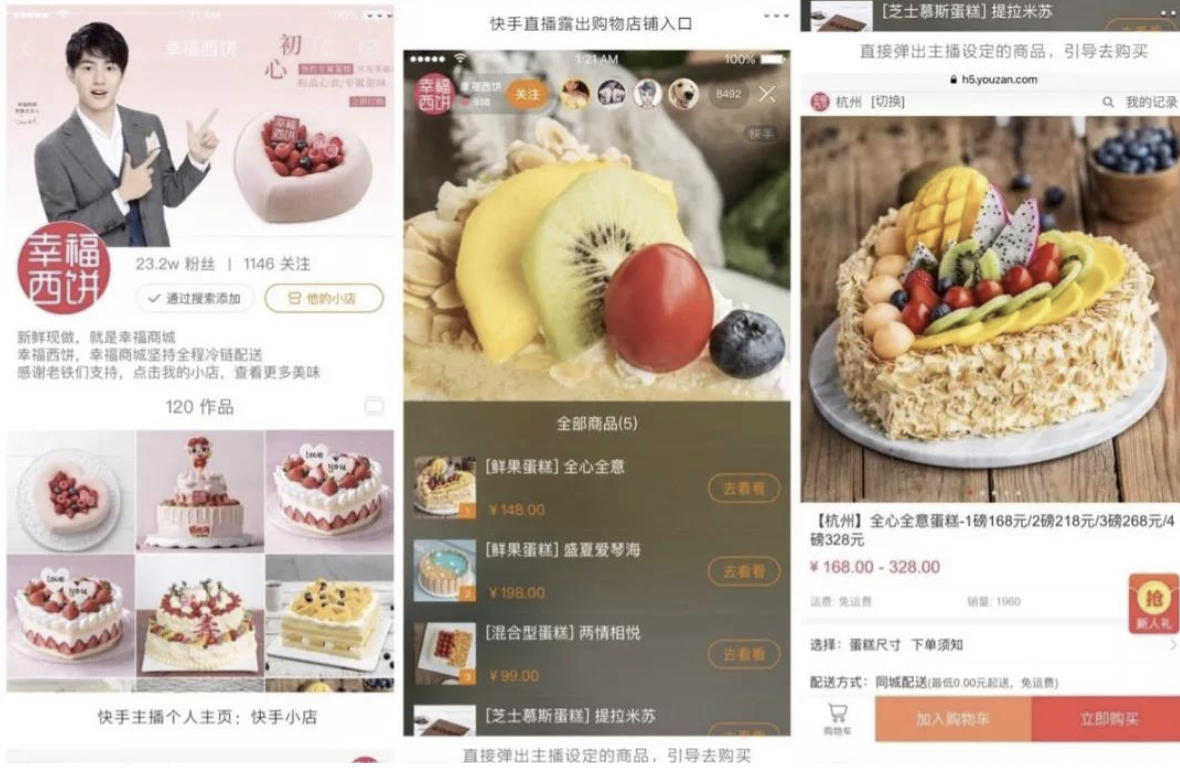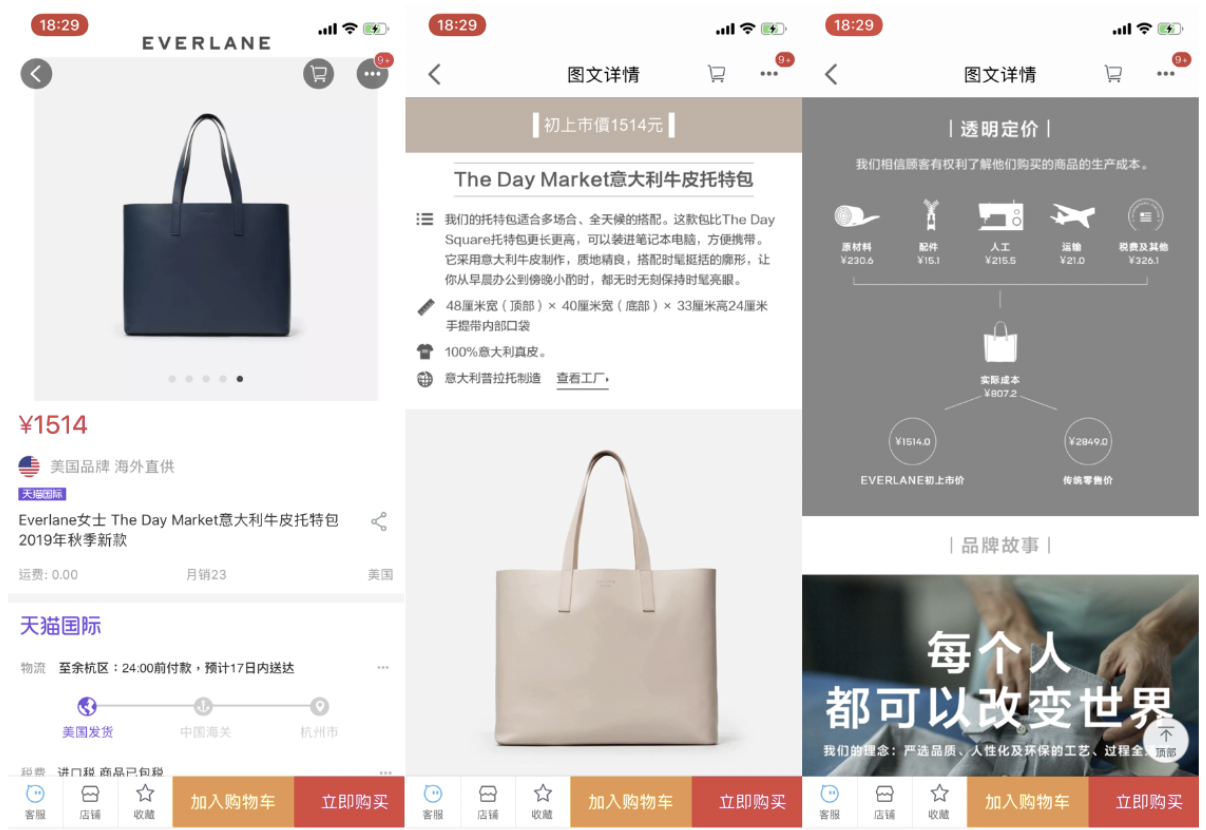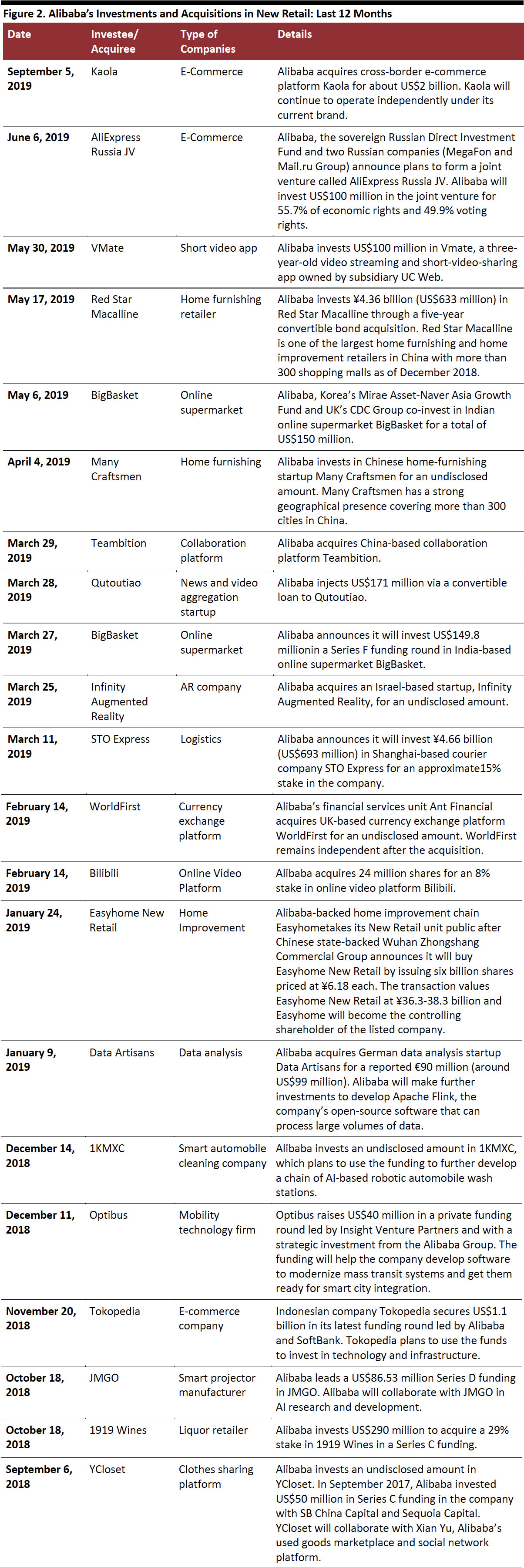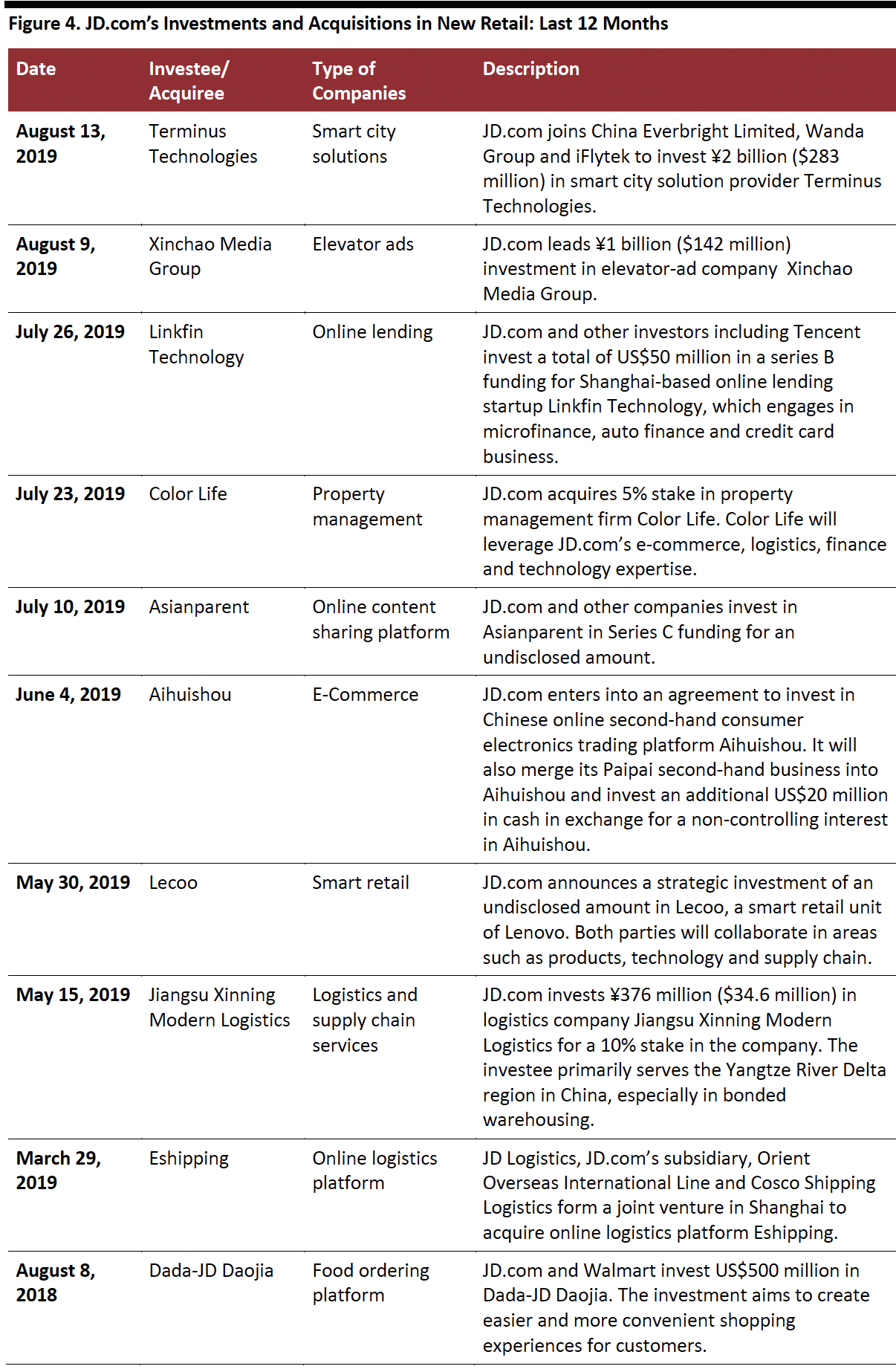
albert Chan
New Retail Briefings
“New Retail” is a model for integrating online retail, offline retail and logistics across a single value chain powered by data and technology. The term was coined by Alibaba Group, although many other companies in China and elsewhere are implementing various elements of the model. In this biweekly series, we review the latest trends in New Retail, with a focus on major digital platforms and multichannel retail companies in China.
What’s New in New Retail
Alibaba Buys NetEase’s Cross-Border E-commerce Platform Kaola
On September 5, Alibaba announced its acquisition of cross-border e-commerce platform Kaola from Chinese gaming company NetEase for US$2 billion. This deal will allow Alibaba to control over half of China’s cross-border e-commerce market.
Kaola, which sells a wide range of imported products in China including apparel, beauty products and consumer electronics, will continue to operate independently, although Tmall import and export general manager Alvin Liu will take on a new role as Kaola’s chief executive officer.
Coresight Research insight: Alibaba wants to up its game to capture more of China’s cross-border e-commerce market, a market projected to reach ¥12 trillion (US$1.7 trillion) by 2020, according to Alibaba’s research arm Ali Institute. Alibaba’s cross-border e-commerce platform Tmall Global held a 25.1% share of the cross border market in the first half of 2019, whereas Kaola held 27.7%, according to research company iiMedia Research Group.
Kuaishou Starts its First Kaopu Haohuojie (“Trustworthy Goods Festival”)
China’s second largest short video app Kuaishou launched its first Kaopu Haohuojie (“Trustworthy Goods Festival”) during August 28-30 and achieved sales of over ¥100 million (US$14 million) in the three-day event.
Earlier this year, Kuaishou started allowing users to apply to use the “Kuaishou Store” function, designed for celebrities and KOLs to promote products to their followers to monetize traffic. Users can demonstrate the products in videos or through livestreaming on Kuaishou and viewers can buy via a third-party platform by clicking on a link in the video.
During the first Trustworthy Goods Festival, Kuaishou featured a range of products it determined to be “trustworthy” using user ratings: To make the cut, a product needs a store rating of at least 4.8 out of a maximum of 5. And nearly all major third-party e-commerce platforms in China, including Tmall, Taobao, JD.com and Pinduoduo, have been integrated into Kuaishou so KOLs can demonstrate products and Kuaishou users will be redirected to buy products they see on Kuaishou. In this three-day event, trousers, toothpaste and T-shirts were the hot-selling products, according to Kuaishou.
[caption id="attachment_95992" align="aligncenter" width="700"] Kuaishou Store pages of a popular user
Kuaishou Store pages of a popular user
Source: Kuaishou [/caption] Coresight Research insight: In China, content and e-commerce increasingly merge into one. Short video platforms are leveraging their huge user bases to tap e-commerce. Douyin, or TikTok, became the first short video app to enable online buying this year. Yet, unlike Kuaishou, which adopted an open-platform strategy that allows redirecting to third-party e-commerce platforms, China’s other short video app Douyin keeps users within its platform by using mini-program shops. Alibaba Promotes Tourism in San Diego Fliggy and Alipay, Alibaba’s travel services platform and digital payment platforms, respectively, have formed a partnership with the San Diego Tourism Authority and Brand USA, the destination marketing organization for the US, to promote the city. The collaboration aims to enhance the travel experience of Chinese visitors in San Diego and improve convenience across airline and hotel booking, itinerary management and local payment. Alipay has created a “City Discovery Page” specifically for San Diego that offers travel tips in Chinese and promotional offers from merchants that accept Alipay. Fliggy will also launch a landing page featuring key attractions, vouchers and itinerary recommendations. US Fashion Brand Everlane Opens on Tmall Global US fashion brand Everlane opened a store on Tmall Global, Alibaba’s cross-border e-commerce platform, to bring its latest offerings to China’s consumers. The offering includes womenswear, menswear, shoes and accessories. This is the company’s second sales channel in China, after its own site. The brand is known for its ethos of “radical transparency” by revealing the costs of making its products from materials, labor, transport to duties and embraces sustainable practices. Tmall Global already hosts over 20,000 brands from 77 countries and regions currently according to Alizila, Alibaba’s official English media. [caption id="attachment_95993" align="aligncenter" width="700"] Everland’s product page on Tmall Global
Everland’s product page on Tmall Global
Source: Alizila[/caption] Appendix: New Retail Developments New Retail developments in China are listed in Figure 1. [caption id="attachment_95994" align="aligncenter" width="700"] Source: Company reports/Coresight Research[/caption]
Investments and Acquisitions in New Retail
To expand New Retail abilities, Alibaba, Tencent and JD.com have invested in logistics firms, online marketplaces, content-creation companies and even brick-and-mortar stores. See selected transactions in the following tables:
[caption id="attachment_95995" align="aligncenter" width="700"]
Source: Company reports/Coresight Research[/caption]
Investments and Acquisitions in New Retail
To expand New Retail abilities, Alibaba, Tencent and JD.com have invested in logistics firms, online marketplaces, content-creation companies and even brick-and-mortar stores. See selected transactions in the following tables:
[caption id="attachment_95995" align="aligncenter" width="700"] Source: Company reports/Coresight Research[/caption]
[caption id="attachment_95996" align="aligncenter" width="700"]
Source: Company reports/Coresight Research[/caption]
[caption id="attachment_95996" align="aligncenter" width="700"] Source: Company reports/Coresight Research[/caption]
[caption id="attachment_95997" align="aligncenter" width="700"]
Source: Company reports/Coresight Research[/caption]
[caption id="attachment_95997" align="aligncenter" width="700"] Source: Company reports/Coresight Research[/caption]
Source: Company reports/Coresight Research[/caption]
 Kuaishou Store pages of a popular user
Kuaishou Store pages of a popular userSource: Kuaishou [/caption] Coresight Research insight: In China, content and e-commerce increasingly merge into one. Short video platforms are leveraging their huge user bases to tap e-commerce. Douyin, or TikTok, became the first short video app to enable online buying this year. Yet, unlike Kuaishou, which adopted an open-platform strategy that allows redirecting to third-party e-commerce platforms, China’s other short video app Douyin keeps users within its platform by using mini-program shops. Alibaba Promotes Tourism in San Diego Fliggy and Alipay, Alibaba’s travel services platform and digital payment platforms, respectively, have formed a partnership with the San Diego Tourism Authority and Brand USA, the destination marketing organization for the US, to promote the city. The collaboration aims to enhance the travel experience of Chinese visitors in San Diego and improve convenience across airline and hotel booking, itinerary management and local payment. Alipay has created a “City Discovery Page” specifically for San Diego that offers travel tips in Chinese and promotional offers from merchants that accept Alipay. Fliggy will also launch a landing page featuring key attractions, vouchers and itinerary recommendations. US Fashion Brand Everlane Opens on Tmall Global US fashion brand Everlane opened a store on Tmall Global, Alibaba’s cross-border e-commerce platform, to bring its latest offerings to China’s consumers. The offering includes womenswear, menswear, shoes and accessories. This is the company’s second sales channel in China, after its own site. The brand is known for its ethos of “radical transparency” by revealing the costs of making its products from materials, labor, transport to duties and embraces sustainable practices. Tmall Global already hosts over 20,000 brands from 77 countries and regions currently according to Alizila, Alibaba’s official English media. [caption id="attachment_95993" align="aligncenter" width="700"]
 Everland’s product page on Tmall Global
Everland’s product page on Tmall GlobalSource: Alizila[/caption] Appendix: New Retail Developments New Retail developments in China are listed in Figure 1. [caption id="attachment_95994" align="aligncenter" width="700"]
 Source: Company reports/Coresight Research[/caption]
Investments and Acquisitions in New Retail
To expand New Retail abilities, Alibaba, Tencent and JD.com have invested in logistics firms, online marketplaces, content-creation companies and even brick-and-mortar stores. See selected transactions in the following tables:
[caption id="attachment_95995" align="aligncenter" width="700"]
Source: Company reports/Coresight Research[/caption]
Investments and Acquisitions in New Retail
To expand New Retail abilities, Alibaba, Tencent and JD.com have invested in logistics firms, online marketplaces, content-creation companies and even brick-and-mortar stores. See selected transactions in the following tables:
[caption id="attachment_95995" align="aligncenter" width="700"] Source: Company reports/Coresight Research[/caption]
[caption id="attachment_95996" align="aligncenter" width="700"]
Source: Company reports/Coresight Research[/caption]
[caption id="attachment_95996" align="aligncenter" width="700"] Source: Company reports/Coresight Research[/caption]
[caption id="attachment_95997" align="aligncenter" width="700"]
Source: Company reports/Coresight Research[/caption]
[caption id="attachment_95997" align="aligncenter" width="700"] Source: Company reports/Coresight Research[/caption]
Source: Company reports/Coresight Research[/caption]